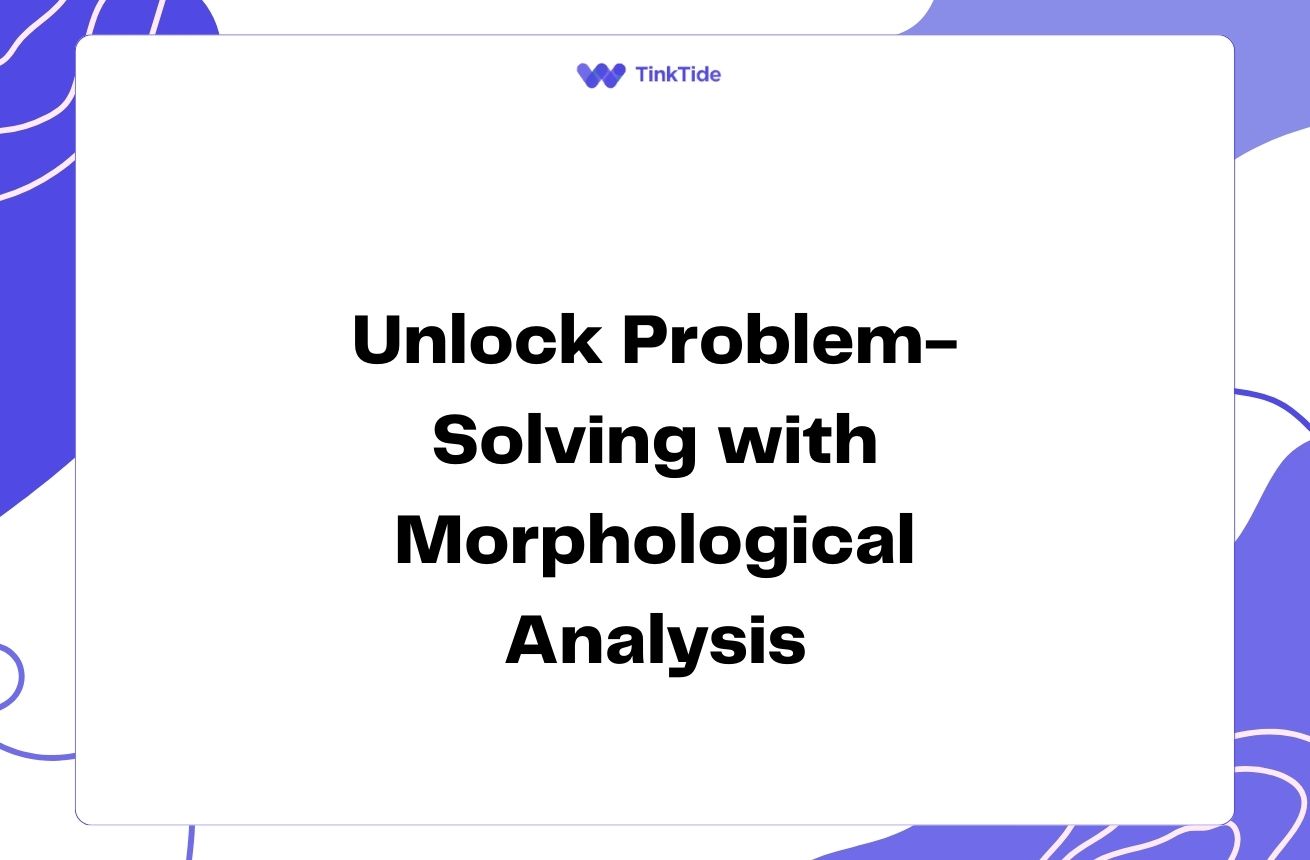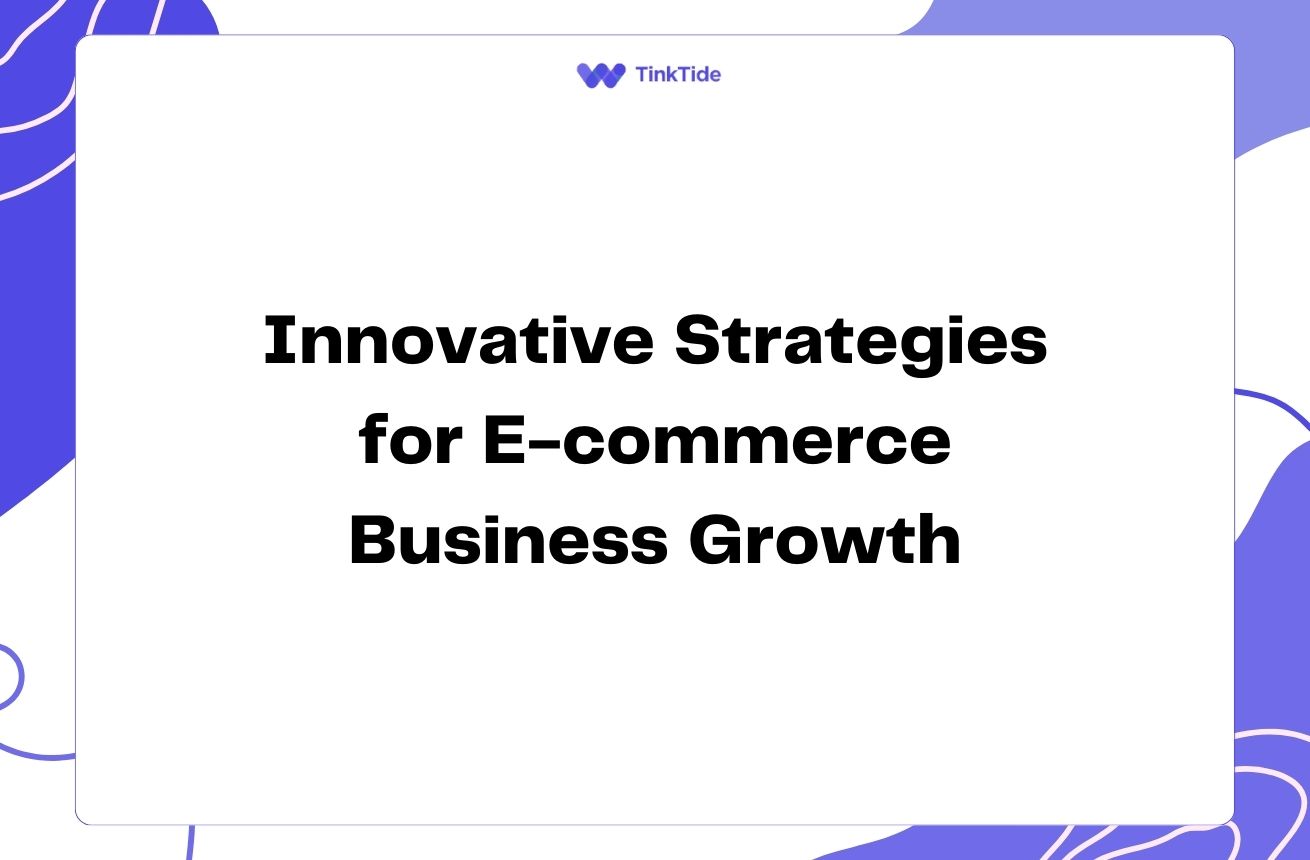AI-Driven Ideation: Revolutionizing Product Development
The Power of AI in Product Development
In today's fast-paced business world, staying ahead of the competition means constantly innovating and bringing new products to market quickly. This is where AI-driven ideation comes into play, revolutionizing the product development process and helping companies accelerate their time-to-market.
AI-driven ideation leverages machine learning algorithms and vast datasets to generate, evaluate, and refine product ideas at an unprecedented speed. By analyzing market trends, consumer behavior, and historical data, AI can identify patterns and opportunities that humans might overlook.
According to a McKinsey report, companies that have adopted AI in their product development processes have seen a 20-30% reduction in time-to-market and a 10-15% increase in successful product launches.
By harnessing the power of AI, businesses can not only generate more ideas but also validate and refine them more efficiently, leading to better products and a competitive edge in the market.
Key Benefits of AI-Driven Ideation
AI-driven ideation offers numerous advantages that can significantly enhance the product development cycle:
- Faster idea generation and evaluation
- Data-driven insights for better decision-making
- Reduced risk of market failure
- Improved resource allocation
- Enhanced collaboration between teams
How AI Accelerates the Ideation Process
Traditional ideation methods often rely on brainstorming sessions and manual research, which can be time-consuming and limited by human biases. AI-driven ideation, on the other hand, can process vast amounts of data in seconds, generating hundreds of potential ideas based on market trends, customer preferences, and historical performance.
For example, IBM's Watson has been used by companies to analyze social media trends, customer feedback, and industry reports to identify emerging opportunities and potential product features. This rapid ideation process allows teams to focus on refining and developing the most promising concepts, rather than spending time on initial idea generation.
Moreover, AI can continuously learn and improve its ideation capabilities, becoming more accurate and efficient over time. This iterative learning process ensures that the quality of ideas generated keeps improving, leading to better products and faster development cycles.
By leveraging AI in the ideation phase, companies can significantly reduce the time spent on conceptualization and move more quickly into prototyping and testing phases.
Enhancing Product Development with AI-Driven Insights
AI doesn't just help in generating ideas; it also plays a crucial role in enhancing the overall product development process. By analyzing market data, customer feedback, and competitive landscapes, AI can provide valuable insights that inform decision-making throughout the development cycle.
For instance, AI-powered tools like Salesforce Einstein can predict customer needs and preferences, allowing product teams to prioritize features that are most likely to resonate with their target audience. This data-driven approach helps in creating products that are more aligned with market demands, reducing the risk of failure.
Additionally, AI can assist in optimizing resource allocation by identifying potential bottlenecks in the development process and suggesting efficient workflows. This ensures that teams can focus their efforts on the most critical aspects of product development, further accelerating the time-to-market.
By integrating AI-driven insights throughout the product development cycle, companies can make more informed decisions, reduce uncertainties, and create products that have a higher chance of success in the market.
Implementing AI-Driven Ideation in Your Organization
To successfully implement AI-driven ideation in your product development process, consider the following steps:
- Assess your current ideation and product development processes
- Identify areas where AI can add the most value
- Choose the right AI tools and platforms for your needs
- Train your team on how to work alongside AI systems
- Establish metrics to measure the impact of AI on your development cycle
Overcoming Challenges in AI-Driven Product Development
While AI-driven ideation offers numerous benefits, it's important to be aware of potential challenges. One common concern is the fear that AI might replace human creativity. However, the reality is that AI is a tool to augment human capabilities, not replace them.
Another challenge is ensuring the quality and relevance of data used by AI systems. Poor data can lead to inaccurate insights and misguided ideas. It's crucial to have robust data management practices in place and to regularly validate AI outputs.
Additionally, there may be resistance to change within organizations. Overcoming this requires clear communication about the benefits of AI-driven ideation and providing proper training to employees. By addressing these challenges proactively, companies can fully harness the potential of AI in their product development cycles.
Remember, the goal is to create a symbiotic relationship between human creativity and AI-driven insights, leading to more innovative and successful products.
The Future of AI in Product Development
As AI technology continues to evolve, we can expect even more sophisticated applications in product development. Future AI systems may be able to not only generate ideas but also create initial prototypes, conduct virtual user testing, and even predict market performance with high accuracy.
We're also likely to see increased integration of AI with other emerging technologies like virtual reality (VR) and augmented reality (AR). This could lead to immersive ideation experiences where teams can visualize and interact with product concepts in real-time.
Moreover, as AI becomes more accessible, even smaller companies and startups will be able to leverage these tools, potentially leveling the playing field in terms of innovation capabilities.
The future of product development is undoubtedly intertwined with AI, promising faster innovation cycles, more targeted products, and ultimately, better experiences for consumers.
Frequently Asked Questions
Here are some common questions about AI-driven ideation in product development:
How does AI-driven ideation differ from traditional methods?
AI-driven ideation processes vast amounts of data quickly, generates ideas based on market trends and customer preferences, and continuously learns and improves. Traditional methods rely more on human brainstorming and manual research, which can be time-consuming and limited by personal biases.
Can AI completely replace human creativity in product development?
No, AI is designed to augment human creativity, not replace it. AI can generate ideas and provide insights, but human judgment is still crucial for interpreting results, making strategic decisions, and adding the creative spark that defines innovative products.
What types of data does AI use for ideation?
AI can analyze various types of data, including market trends, customer feedback, social media sentiment, competitor analysis, historical product performance, and industry reports. The more diverse and high-quality the data, the better the AI's ideation capabilities.
How can small businesses benefit from AI-driven ideation?
Small businesses can leverage AI tools to compete with larger companies by gaining insights they might not have the resources to gather manually. AI can help them identify niche opportunities, understand customer needs better, and develop products more efficiently, leveling the playing field.
What are the potential risks of relying on AI for product ideation?
Risks include over-reliance on AI without human oversight, using poor quality data that leads to inaccurate insights, and potential bias in AI algorithms. It's important to use AI as a tool to support decision-making rather than as a replacement for human judgment and creativity.
How can companies measure the success of AI-driven ideation?
Success can be measured through metrics such as reduction in time-to-market, increase in successful product launches, improved customer satisfaction scores, and return on investment for new products. Companies should also track the quality and quantity of ideas generated and how many make it to the development stage.
Additional Resources
AI for Product Development
McKinsey's insights on how AI is transforming product development
IBM Watson for Product Development
Explore IBM Watson's AI solutions for product innovation
AI in Design Thinking
IDEO's perspective on integrating AI into the design thinking process
The Future of AI in Product Management
ProductPlan's guide to AI applications in product management
AI for Startups: Product Development
Startup Grind's article on AI's impact on product development for new businesses
Embracing the AI-Driven Future of Product Development
AI-driven ideation is not just a trend; it's a transformative force in product development. By accelerating idea generation, providing data-driven insights, and enhancing decision-making processes, AI is enabling companies to innovate faster and more effectively than ever before.
As we've explored, the benefits of integrating AI into your product development cycle are numerous, from reduced time-to-market to improved product-market fit. However, successful implementation requires a strategic approach, the right tools, and a willingness to adapt to new ways of working.
The future of product development is here, and it's powered by AI. By embracing these technologies and methodologies, you can position your organization at the forefront of innovation, ready to meet the challenges and opportunities of tomorrow's market.
Accelerate Your Product Development with AI
Discover how our AI-powered platform can revolutionize your ideation process and boost your product development cycle.
Start Your Free Trial

